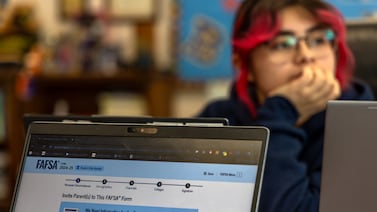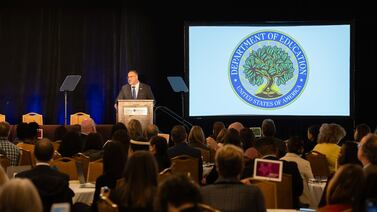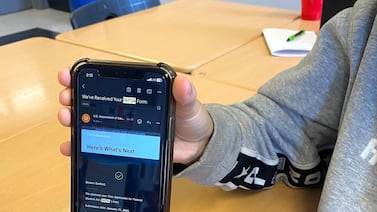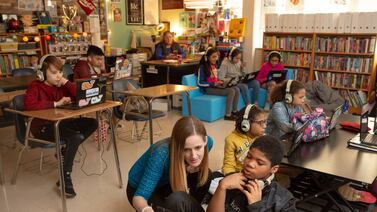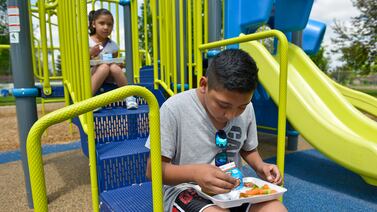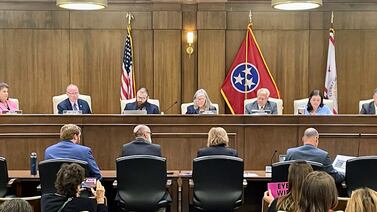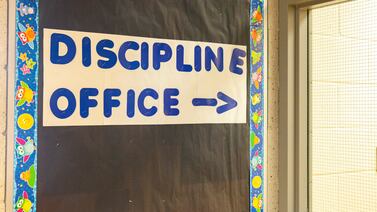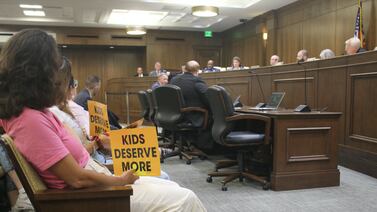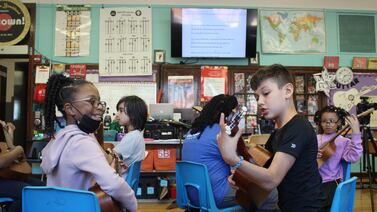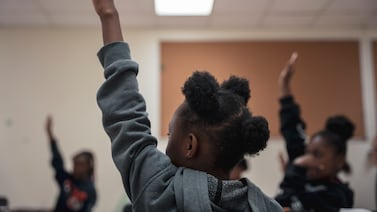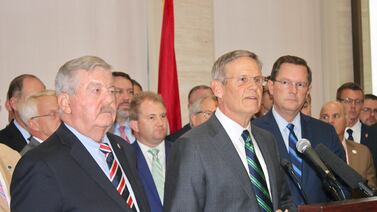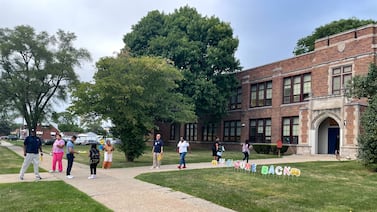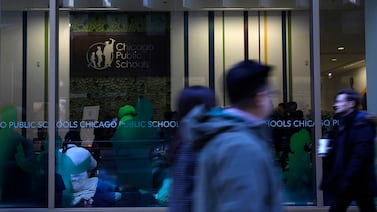Federal policy and reform
Parents without Social Security numbers can now contribute to the FAFSA. But schools are still working to support families that have to manually enter financial information.
The president’s pitch to continue some pandemic-era programs and increase financial aid faces a hostile Congress.
Students say hands-on help has been crucial for navigating FAFSA challenges. But school counselors can’t help parents without Social Security numbers until federal officials fix a critical issue.
To truly close the digital divide, a new National Education Technology Plan calls for schools to move from passive use to active learning.
The Biden administration highlighted tutoring in Chicago and efforts to combat chronic absenteeism in Detroit as officials urged schools to do more to raise student achievement.
Another 35 states have signed on to offer Summer EBT. Among them: Colorado, Illinois, Indiana, Michigan, New Jersey, New York, Pennsylvania, and Tennessee. Eligible families will get $120 per child to boost their grocery budgets when school isn’t in session.
Three private vendors serving Illinois also secured grants to add electric buses to their fleet.
Investments in other needs would suffer, panelists conclude
U.S. rises in world rankings for math, reading, science as other countries’ performance slips
The drop in suspensions likely reflects a combination of fewer students learning in person and a reticence among educators to remove students from the classroom.
Aging school buildings, lagging teacher pay: ‘The needs are so great,’ says head of Memphis district.
Federal education officials have received at least nine complaints involving antisemitism or Islamophobia on college or K-12 campuses since Hamas attacked Israel last month.
A long-awaited Biden administration program is putting $12.5 million toward school integration efforts.
A new federal rule permits 3,000 more districts to give free meals to all students. But without additional funding from Congress, many will likely hold off.
The group will begin meeting in early November and report to the legislature by Jan. 6.
“I would love us to try to agree on some goals,” said Arne Ducan at a forum on Tuesday. “I don’t have a lot of optimism that it’s going to come at the national level.”
Most federal money supports low-income students, English language learners, students with disabilities.
Here’s what we know: high-poverty schools face a bigger cliff, that more federal money won’t be forthcoming, and that school budgets will be shaped both by districts’ own financial decisions and those made by state politicians.
The inspector general found they fraudulently got federal loans during the early days of the COVID-19 pandemic in 2020.

